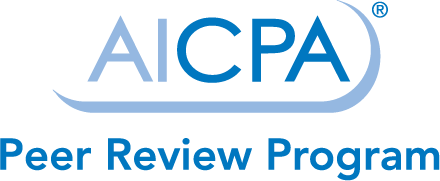Peer Review Update for State Boards of Accountancy - March 2017
March 7, 2017

Toolkit available to help auditors document appropriately
Lack of adequate documentation is the most common cause of material non-conformity in audits, according to the AICPA Peer Review Enhanced Oversight Program. In response, the AICPA is developing a free toolkit of resources to help auditors document appropriately and comply with the standards.
The AICPA’s documentation toolkit provides free resources for auditors seeking to identify and address potential documentation deficiencies in their practice. The resources include a PowerPoint presentation (with speaker notes) firms can use to train their personnel on the Audit Documentation standard, a nano-learning segment, sample working papers and practice aids from the Governmental and Employee Benefit Plan Audit Quality Centers. Once live, the documentation tools will be available at aicpa.org/documentation.
Improving firm and engagement tracking
The AICPA has conducted data mining efforts to increase the likelihood that all firms that are required to have a peer review are actually enrolled in the Peer Review Program, and that all engagements that should be subject to peer review are included in the scope.
The Peer Review Board (Board) recently analyzed single audits filed with the Federal Audit Clearinghouse (FAC) to identify firms performing single audit engagements and determine their compliance with peer review requirements. The Board found that 5 percent of firms were not in compliance.
Additionally, the Board will conduct another analysis of employee benefit plan audits filings in the DOL EFAST2 database to determine if firms performing those engagements are properly enrolled in peer review. Such an analysis was previously performed in 2013, with a 21 percent noncompliance rate.
As occurred with the previous analysis of the EFAST2 database, the recent comparison with the FAC and upcoming comparison with the EFAST2 will result in non-complying firms being referred to the boards of accountancy in the states in which the firms' primary offices are located.
AICPA peer reviewer performance improving
Recent data released by the AICPA Peer Review Program indicate the program is making significant progress toward its goal of improved peer reviewer performance.
In an effort to improve peer reviewer quality, the Peer Review Board (Board) instituted new requirements that expedite the process of remediating and removing poorly-performing peer reviewers. The Board also increased the qualifications to review specialized engagements, such as employee benefit plans and single audits, and instituted new training requirements for team captains and reviewers of specialized engagements. Additionally, to support peer reviewers who lack the requisite experience in specialized engagements, the Board added a significant number of highly-qualified subject matter experts to the peer reviewer pool.
With these new peer reviewer requirements, data shows that peer reviewers are detecting more non-conformity than ever on must-select engagements. In fact, the rate of detection has more than doubled since the commencement of the EAQ initiative. Additionally, poorly-performing peer reviewers are getting the help they need to improve, as the number of peer reviewers subject to remediation has tripled.
Presentation on evolution of peer review administration
The AICPA is seeking input from state boards of accountancy on an alternative proposal for administration to increase consistency, efficiency and effectiveness of the AICPA Peer Review Program (Program). Susan Coffey, Executive Vice President – Public Practice, will participate in a panel presentation on March 14, 2017, at the NASBA Executive Directors Conference. In addition, staff will be available to answer questions throughout the conference.
Feedback on the revised proposal is requested by June 30, 2017. The AICPA then plans to release the final proposal on August 31, 2017.
